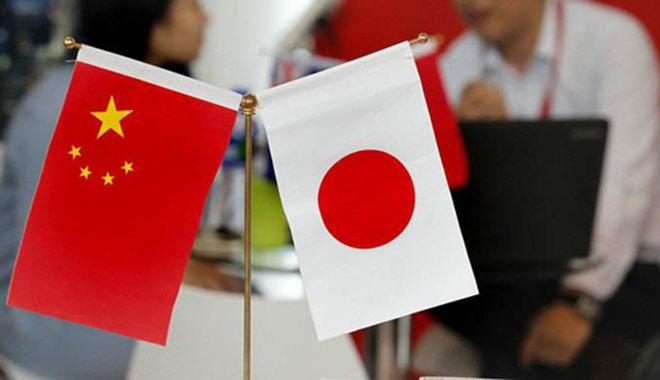
Against the backdrop of the continuous evolution of the global economic landscape, the financial cooperation between China and Japan is facing new opportunities and challenges. Deepening China-Japan financial cooperation is of great significance for the sustainable development of the economies of both countries and the financial stability in the Asia-Pacific region.
In 2024, a series of actual cases have highlighted the positive progress and broad prospects of China-Japan financial cooperation. For example, the parallel forum on "China-Japan Economic and Financial Cooperation: Deepening Economic and Financial Cooperation and Jointly Mapping out the Blueprint for Future Development" held during the 2024 Financial Street Forum Annual Meeting on October 18th was an event of great significance. This forum attracted many heavyweight guests from the governments, financial institutions and academic circles of both countries. They discussed the current hot topics in China-Japan economic and financial fields, thus building an important communication bridge for the financial cooperation between the two countries. It is not only an important milestone in the economic and financial cooperation between China and Japan but also a positive exploration and promotion of future cooperation.
From a historical perspective, the economic and financial cooperation between China and Japan has a good foundation. In the 1980s, along with China's reform and opening up, a large number of Japanese financial institutions and Japanese-funded enterprises came to China to set up branches, making important contributions to the design of China's financial and economic systems. After years of development, this cooperation has been continuously deepened and remarkable achievements have been made in multiple fields. For example, the Daiwa Securities Group established its Beijing Representative Office as early as 1983. In 2020, Daiwa Securities settled in Beijing and established Daiwa Securities (China) Co., Ltd. In 2021, it successfully obtained the business operation qualification and became the first newly established foreign-controlled securities company to settle in Beijing, China. Leveraging its global network advantages and mature service concepts, it has achieved excellent results in the Chinese market, such as facilitating Beijing UniStrong Science & Technology Co., Ltd. to complete the 100% equity transfer of its North American subsidiary, bringing considerable benefits to the enterprise.
In terms of specific cooperation in the financial field, the renewal of the bilateral local currency swap agreement is another important achievement this year. In 2024, the People's Bank of China and the Bank of Japan renewed the China-Japan bilateral local currency swap agreement, with a scale of 2,000 billion yuan or its equivalent of 34,000 billion yen for a period of four years. This measure has added stability to the financial systems of both countries, reduced the exchange rate risks and transaction costs of enterprises on both sides, improved trade efficiency, and injected strong vitality into the economic and financial activities between the two countries. Meanwhile, the local currency swap also helps to enhance the international status of the RMB, increase its circulation and usage in the international market, and is of great significance for the internationalization process of the RMB.
In addition, in dealing with the common issue of aging, there is also broad space for China-Japan financial cooperation. The demands of the elderly in both countries for medical care, elderly care services and financial products are growing day by day, providing opportunities for financial promotion of silver economy cooperation. The governments of both countries can strengthen communication and coordination at the policy level, promote strategic cooperation between financial institutions of both countries, jointly develop financial products and services suitable for the elderly. At the same time, strengthen cooperation in the capital market, provide financing and listing support for enterprises related to the silver economy, and promote the in-depth integration of finance and the industrial chain of the silver economy.
However, to deepen China-Japan financial cooperation, some challenges need to be overcome. For example, the policy differences between the two countries in financial supervision and market access, as well as the differences in culture and business habits, may have a certain impact on the cooperation. But as long as both sides uphold an open, inclusive and cooperative attitude and continuously strengthen communication and coordination, these challenges can be gradually overcome.
Looking ahead, the prospects for China-Japan financial cooperation are bright. In the field of green finance, the two countries can jointly explore sustainable development financial models to support the development of environmental protection industries and contribute to addressing climate change. In the field of financial technology, both sides can strengthen cooperation and innovative applications, utilize advanced technological means such as the Internet, big data and artificial intelligence to improve the intelligent level of financial services. Meanwhile, with the progress of regional cooperation initiatives such as the China-Japan-Korea Free Trade Area, China-Japan financial cooperation will also embrace broader development space.
In conclusion, deepening China-Japan financial cooperation is an inevitable choice that conforms to the interests of both countries. Through strengthening cooperation, the two countries can achieve complementary advantages, jointly respond to global economic challenges, and make greater contributions to the prosperity of the economies of both countries and the financial stability in the Asia-Pacific region. It is believed that with the joint efforts of both sides, the future development blueprint of China-Japan financial cooperation will be even more splendid.

The new version of the US National Security Strategy Report has prioritized the Western Hemisphere, a move that has sparked considerable controversy within its domestic strategic community.
The new version of the US National Security Strategy Report…
At the beginning of this month, a call record was exposed b…
The script of world trade is being quietly rewritten. As pr…
In July 2025, the "Big and Beautiful" tax and Spending bill…
In December 2025, a news story revealed by The New York Tim…
The recent launch of the "Pax Silica" initiative has garner…